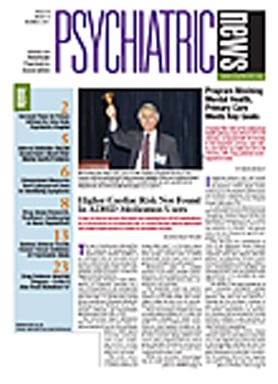The use of medications indicated for the treatment of attention-deficit/ hyperactivity disorder (ADHD) is not associated with an increased risk of serious cardiovascular events among children and young adults, finds a new study published online November 1 in the New England Journal of Medicine.
For the study, William Cooper, M.D., M.P.H., of Vanderbilt University led a team of researchers in the retrospective analysis of electronic health records pooled from four large U.S. health plans serving diverse populations (Tennessee Medicaid, Washington State Medicaid, Kaiser Permanente California, and OptumInsight Epidemiology) from 1986 to 2005.
The researchers linked information from these records with state death certificates and data from the National Death Index to verify reports of serious cardiovascular events, includi ng sudden card iac death, acute myocardial infarction, and stroke.
The study cohort comprised more than 1.2 million children and young adults aged 2 to 24, with a mean age of 11. Study subjects were divided into three groups— current users of ADHD medications, for mer users, and a control group of randomly selected nonusers.
Medications taken by patients involved in the study included methylphenidate, dexmethylphenidate, dextro-amphetamines, amphetamine salts, atomoxetine, and pemoline.
The researchers noted that individuals with congenital heart disease were included in the study, while those hospitalized within the prior year for myocar-dial infarction or stroke were excluded.
With a mean length of follow-up across all study-group members of 2.1 years, the researchers identified 81 deaths attributable to serious cardiovascular events. However, their analysis revealed no significant difference in risk of a serious event for those currently taking ADHD medications when compared with the control group. Similarly, the risk for current users of medications was not increased when compared with former users.
While the researchers acknowledged that the small number of serious cardiovascular events identified in the study precluded them from estimating the risk associated with specific drugs and cohort subgroups, they did find sufficient evidence to indicate that methylphenidate (one of the medications most commonly used for the treatment of ADHD) carries no increased risk for cardiovascular events.
The researchers conducted several alternative analyses to consider other factors that could have influenced their findings (e.g., age, date of initial drug use) but reported “essentially identical” results. Among the adjustments made for these analyses were limiting the pool of current users to those first taking their ADHD medication within the prior year and excluding those over age 17.
Larry Silver, M.D., a child and adolescent psychiatrist and clinical professor of psychiatry at Georgetown University Medical Center, told Psychiatric News that the results of this study should quell safety concerns that led the Food and Drug Administration (FDA) in 2006 to recommend the placement of a black-box warning on ADHD medication labels alerting people to the possible risks of “heart attacks and other cardiovascular events” in children.
“Even though the FDA’s Pediatric Advisory Committee concluded that clinical studies did not warrant such a warning, the FDA continued to include one,” said Silver. “Both this study and a recent study conducted by the American Academy of Pediatrics confirm that there is no higher risk of cardiovascular events with individuals taking ADHD medications than in the general population. It is time to remove the black-box warning.”
The study was funded by the Department of Health and Human Services’ Agency for Healthcare Research and Quality and the FDA. It was conducted in parallel with a study of the relationship between ADHD medications and serious cardiovascular events in adults aged 25 to 64.

